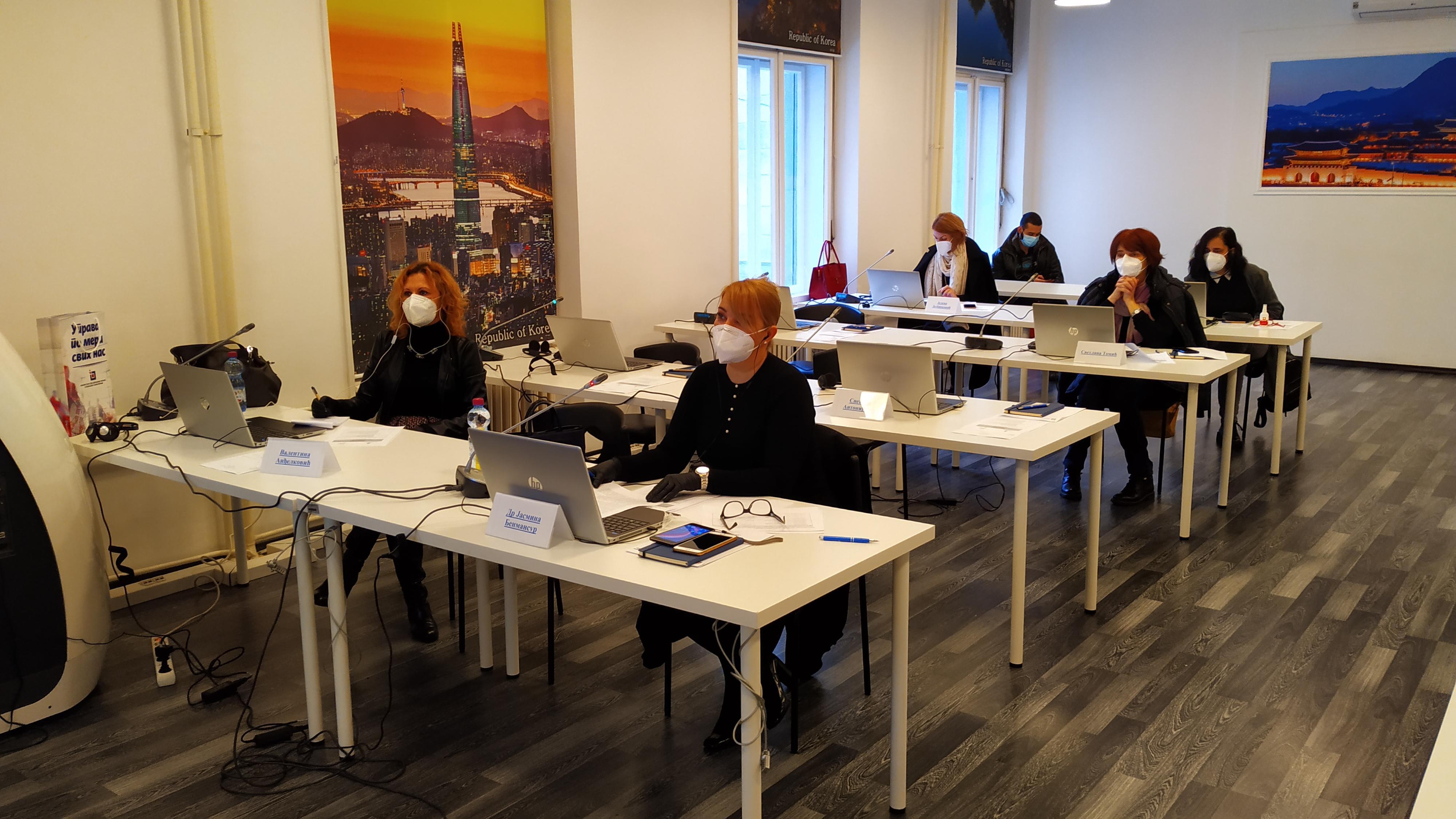
Within the cooperation that the Ministry of Public Administration and Local Self-Government has with the competent institutions of the Republic of France, the representatives of the Ministry informed their French colleagues about the achieved results in the reform processes in the field of Professional Training in Public Administration of the Republic of Serbia.
Assistant Minister, Jasmina Benmansur pointed out that in recent years great steps have been taken in creating institutional conditions for continuous administrative capacity building and professional development of civil servants, which is one of the requirements we need to meet on our path to European integration.
We have established a new system of professional training, which provides equal quality and equal access to the right to professional training for all employees and managers in public administration. We have established the National Academy of Public Administration as a single center for knowledge management and spreading the culture of lifelong learning and personal development of all human resources in public administration, said Benmansur, but we want to further build our system by introducing lifelong learning principles in the professional development.
French experiences and good practice in this area were presented by Latifa Benabou Lucido, Project Manager at the Office for Lifelong Learning of the Directorate General for Public Administration and Civil Services (DGAFP) of the French Republic. She presented the Master Plan for Lifelong Professional Development of Civil Servants in the French Administration and especially emphasized its impact on improving the capacity of both civil servants, as well as of the officials at other levels of the Government.
The video conference was also attended by representatives of the National Academy of Public Administration and the Personnel Management Service, the institutions that will play an important role in further work on the establishment of this concept in our Civil Service System.



